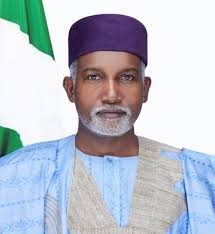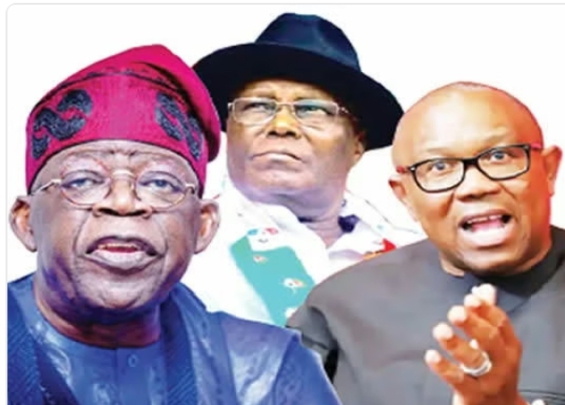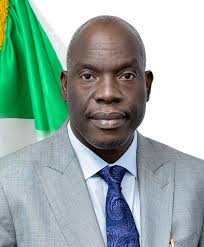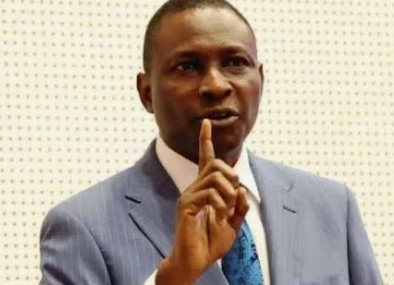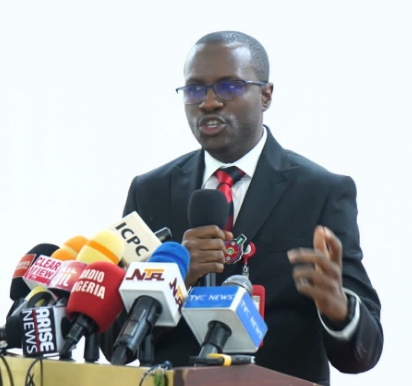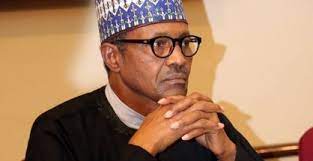
Nigerians have faulted the current request by President Muhammedu Buhari to borrow $6.183billion external loan to finance the 2021 budget.
They said the frequency of loans are too frightening and raise doubt about the ability of the country to repay same so soon given the current global economic turmoil.
The Director General of Lagos Chamber of Commerce and Industry,Muda Yussuf,told PREMIUM NEWS that the rising debt profile of government raises serious sustainability concerns.
He said although government tends to argue that the condition is not a debt problem, but a revenue challenge.
“But the truth is that debt becomes a problem if the revenue base is not strong enough to service the debt sustainably. It invariably becomes a debt problem.What is needed is the political will to cut expenditure and undertake reforms that could scale down the size of government, reduce governance cost and ease the fiscal burden on government.”
Yusuf emphasized the need to ensure that the debt was used strictly to fund capital projects that would strengthen the productive capacity of the economy, adding that emphasis should be on concessionary financing, as opposed to commercial debts which were typically very costly.
President of Abuja Chamber of Commerce and Industry,ACCI, Dr Al-Mujtaba Abubakar, advised the government to be mindful of the adverse effect of excessive borrowing.
Abubakar said, “We, however, urge the Federal Government to take judicious note of the negative side of excessive borrowing, especially on interest payment among others. We particularly called attention to the already high debt service rate and its attendant depletion of revenue earnings.
“We once again call on the Federal Government to minimise borrowing and focus more on cutting the cost of governance. If this is not done, debt service may soon further cripple the economy and dampen any hope of higher GDP growth.
“When other economic indices are considered, it is clear the administration needs to urgently embark on cost chatting measures before it is too late.”
Former presidential candidate under the banner of National Conscience Party, Martin Onovo,told PREMIUM NEWS that there was no hope for Nigeria’s survival again following the frequency of borrowings by the current administration.
General Secretary of Socialist Party of Nigeria,Chinedu Bosah,said the ruling government has mortgaged the future of unborn Nigerians with the frequency of loans they sought abroad.
He regretted Nigerian leaders lack the tact to look inward and boost the productivity of Nigerians with a view to sustaining the country.
President Muhammadu Buhari had sought the approval of the National Assembly, borrow about $6.183 billion (about N2.34 trillion) as new external borrowing plan for the 2021 fiscal year.
He also stated that it would be partly used to finance the N5.602 trillion deficit in the budget.
The president in another letter, both of which were addressed to the House of Representatives’ Speaker, Femi Gbajabiamila, and read during plenary of the House of Representatives on Tuesday, also requested for a legislative approval of some donor funded projects listed in the 2018-2020 external borrowing plan, to be financed through sovereign loans from the World Bank. African Development Bank (AfDB), French Development Agency (AFD), Islamic Development Bank, China EXIMBank, China Development Bank, European Investment Bank, European ECA. KfW, IPEX, AFC, India EximBank and lntemational Fund for Agricultural Development (IFAD), total of which he put at a total sum of $3,837 billion, and €910 million.
Explaining the intent of the government on the new borrowing plan, the President stated that “the plan is to raise the sum of USD 6.183 billion from a combination of sources; namely: multilateral and bilateral lenders, as well as from the International Capital Market (ICM) through the issuance of Eurobonds.
“From recent trends in the ICM, it is now possible for Nigeria to raise funds in the ICM and this explains why we are proposing that the New External Borrowing in the 2021 Appropriation Act, should include issuing Eurobonds in the ICM. We estimate that Nigeria may be able to raise USD 3 billion or more, but not more than USD 6.183 billion (the amount provided in the 2021 Appropriation Act) in a combination of tenors between 5 and 30 years; the outcome would, however, be determined when Nigeria approaches the market.
“This request is in line with the provisions of Sections 21(1) and 27(1) of the Debt Management Office (Establishment, Etc.) Act, 2003 (DMO Act). Section 21(1) of the DMO states that ‘no external loan shall be approved or obtained by the Minister unless its terms and conditions shall have been laid before the National Assembly and approved by its resolution’, while Section 27(1) states that ‘the National Assembly may by a resolution approve, from time to time, standard terms and conditions for the negotiation and acceptance of external loans and issuance of guarantees”, the president said.
The president cited certain economic factors stressing that “accessing the ICM will be relatively cheaper thereby moderating debt service cost, and it will also contribute to the level of External Reserves”.
Also on the donor funded projects, he explained that “the projects and programmes in the Borrowing Plan were selected based on positive, technical and economic evaluations as well as the contribution they would make to the socio economic development of the country including employment generation and poverty reduction as well as protection of the most vulnerable and very poor segments of the Nigerian society”.





